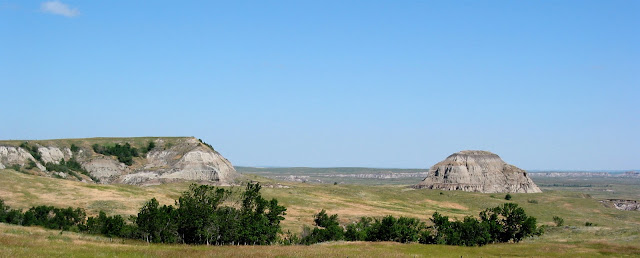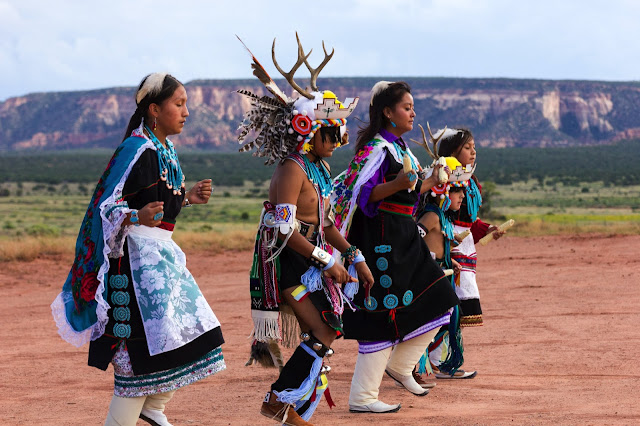Standing Rock: A Battle Is Won, but the Threat Goes On
This article appeared in Indian Country Media Network in 2017. For more on topics like this, see my book, American Apartheid: The Native American Struggle....
The Standing Rock Sioux Tribe has won a significant victory against the Dakota Access Pipeline, or DAPL. This week, a federal court said that the agency overseeing the permitting process for the oil line hadn’t fully complied with the National Environmental Policy Act (NEPA).
Tribal chairman Dave Archambault praised the court’s decision, saying the tribe would ask for the line to be shut down immediately. The pipeline was completed across the Missouri River and is operational. That is despite more than a year of demonstrations against it by Standing Rock and hundreds of other tribes, resulting in some 700 arrests and many severe injuries to demonstrators, who call themselves water protectors.
According to the U.S. District Court for the District of Columbia, the Army Corps of Engineers didn’t do the full environmental impact review required for large projects with significant impacts. The Corps also didn’t take into account the possibility of oil spills, and it didn’t consider the effect of spills on the tribe’s treaty right to hunt and fish in the area. Finally, the court said, the Corps assumed any damage from a spill would
extend only a half-mile from the Missouri River. Not likely, according to the
court.
 Tribal member Aubrey Skye, shown at bottom, agrees with the court. Like other tribal members, Skye is concerned about the safety of the tribe’s water supply, as well as that of the nearly 20 million people downstream who rely on the Missouri. Skye is also a longtime organic farmer and wants to dig a well to support expanding his enterprise and selling produce at farmers markets. The DAPL pipeline has already spilled oil in other parts of the region, so he consulted a water-treatment expert.
Tribal member Aubrey Skye, shown at bottom, agrees with the court. Like other tribal members, Skye is concerned about the safety of the tribe’s water supply, as well as that of the nearly 20 million people downstream who rely on the Missouri. Skye is also a longtime organic farmer and wants to dig a well to support expanding his enterprise and selling produce at farmers markets. The DAPL pipeline has already spilled oil in other parts of the region, so he consulted a water-treatment expert.
To Skye’s dismay, he learned that because DAPL was built to lie many feet under the Missouri, a spill would pollute the underground water that feeds wells; it would also cause damage that would spread much farther than half a mile from the river. This puts his business plan in jeopardy—and more. “The DAPL pipeline endangers so much,” Skye said. “If the aquifer is contaminated, wildlife and plant life will be affected, as well as drinking and agricultural water.”
 Tribal member Aubrey Skye, shown at bottom, agrees with the court. Like other tribal members, Skye is concerned about the safety of the tribe’s water supply, as well as that of the nearly 20 million people downstream who rely on the Missouri. Skye is also a longtime organic farmer and wants to dig a well to support expanding his enterprise and selling produce at farmers markets. The DAPL pipeline has already spilled oil in other parts of the region, so he consulted a water-treatment expert.
Tribal member Aubrey Skye, shown at bottom, agrees with the court. Like other tribal members, Skye is concerned about the safety of the tribe’s water supply, as well as that of the nearly 20 million people downstream who rely on the Missouri. Skye is also a longtime organic farmer and wants to dig a well to support expanding his enterprise and selling produce at farmers markets. The DAPL pipeline has already spilled oil in other parts of the region, so he consulted a water-treatment expert. To Skye’s dismay, he learned that because DAPL was built to lie many feet under the Missouri, a spill would pollute the underground water that feeds wells; it would also cause damage that would spread much farther than half a mile from the river. This puts his business plan in jeopardy—and more. “The DAPL pipeline endangers so much,” Skye said. “If the aquifer is contaminated, wildlife and plant life will be affected, as well as drinking and agricultural water.”
Attorney Jon Hasselman, of Earthjustice, which brought the suit on behalf of the Standing Rock Sioux Tribe, has explained that the effort still
faces “significant headwinds” under the Trump administration. However, he said, the tribe is “not
backing down from this fight.” Next week will bring more news from the court, which has asked for additional information on the issue of closing down the pipeline, according to Hasselman.
Text c. Stephanie Woodard; photos top and bottom c. Woodard; 2 photos taken at Standing Rock c. Joseph Zummo.




